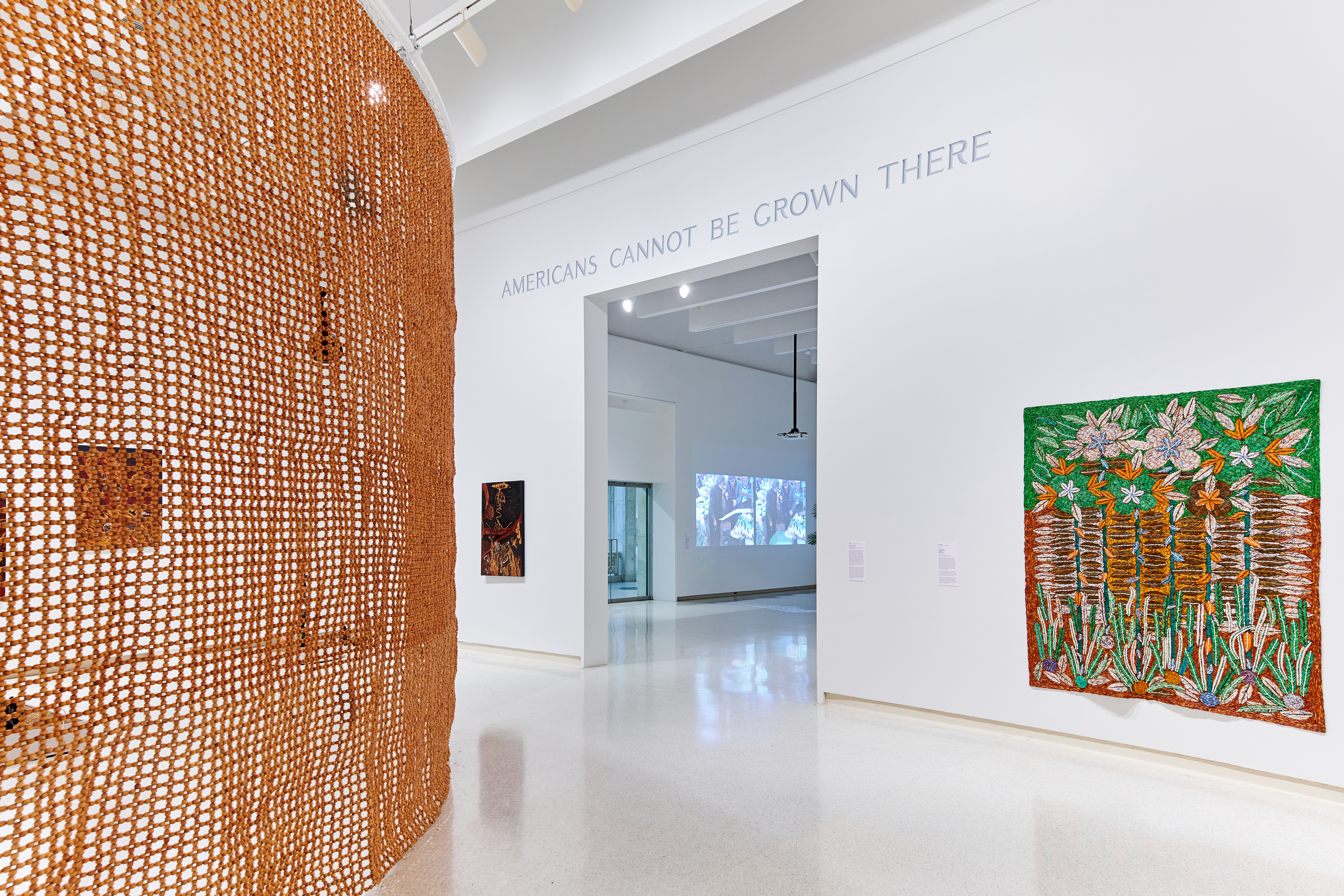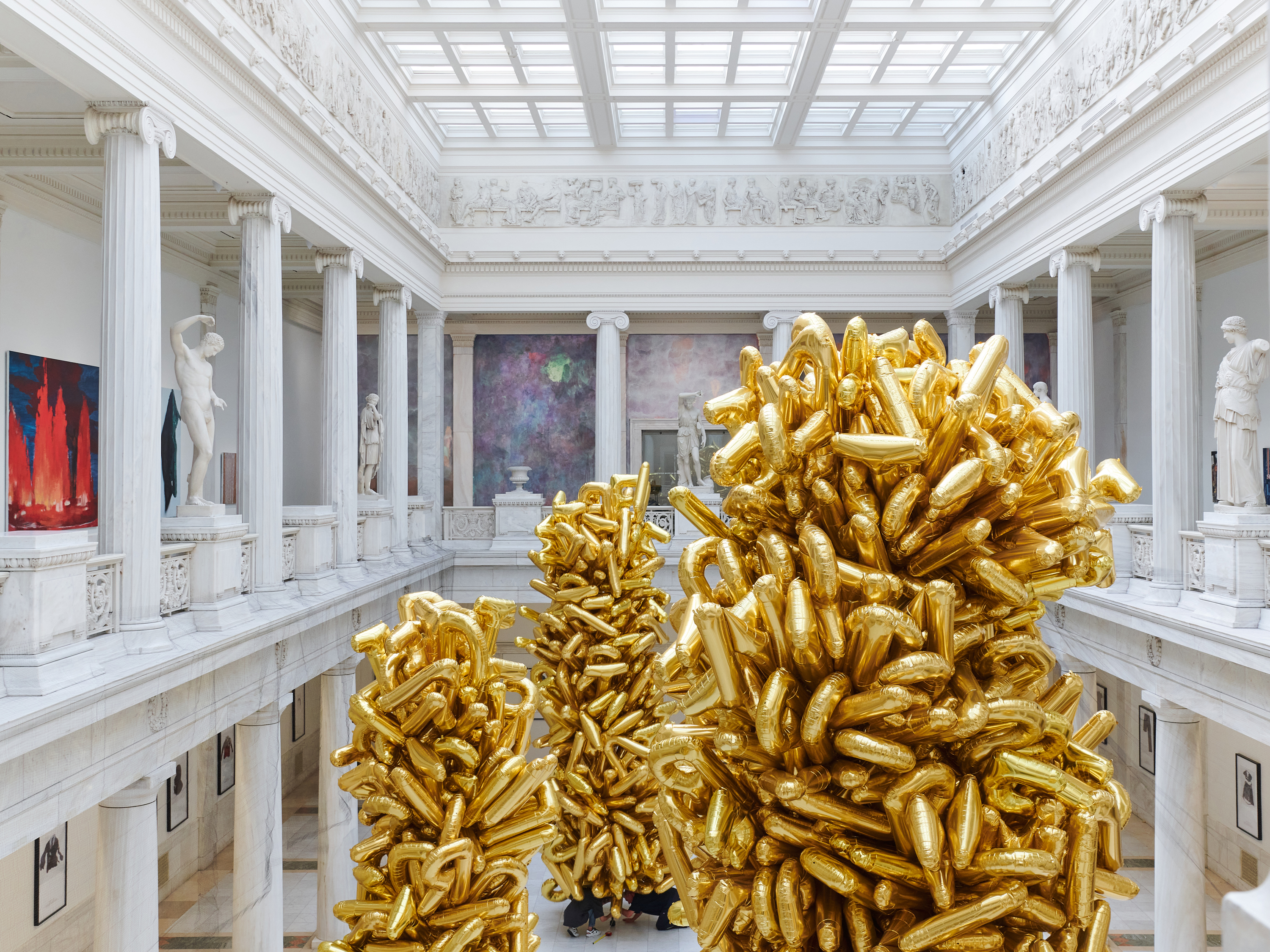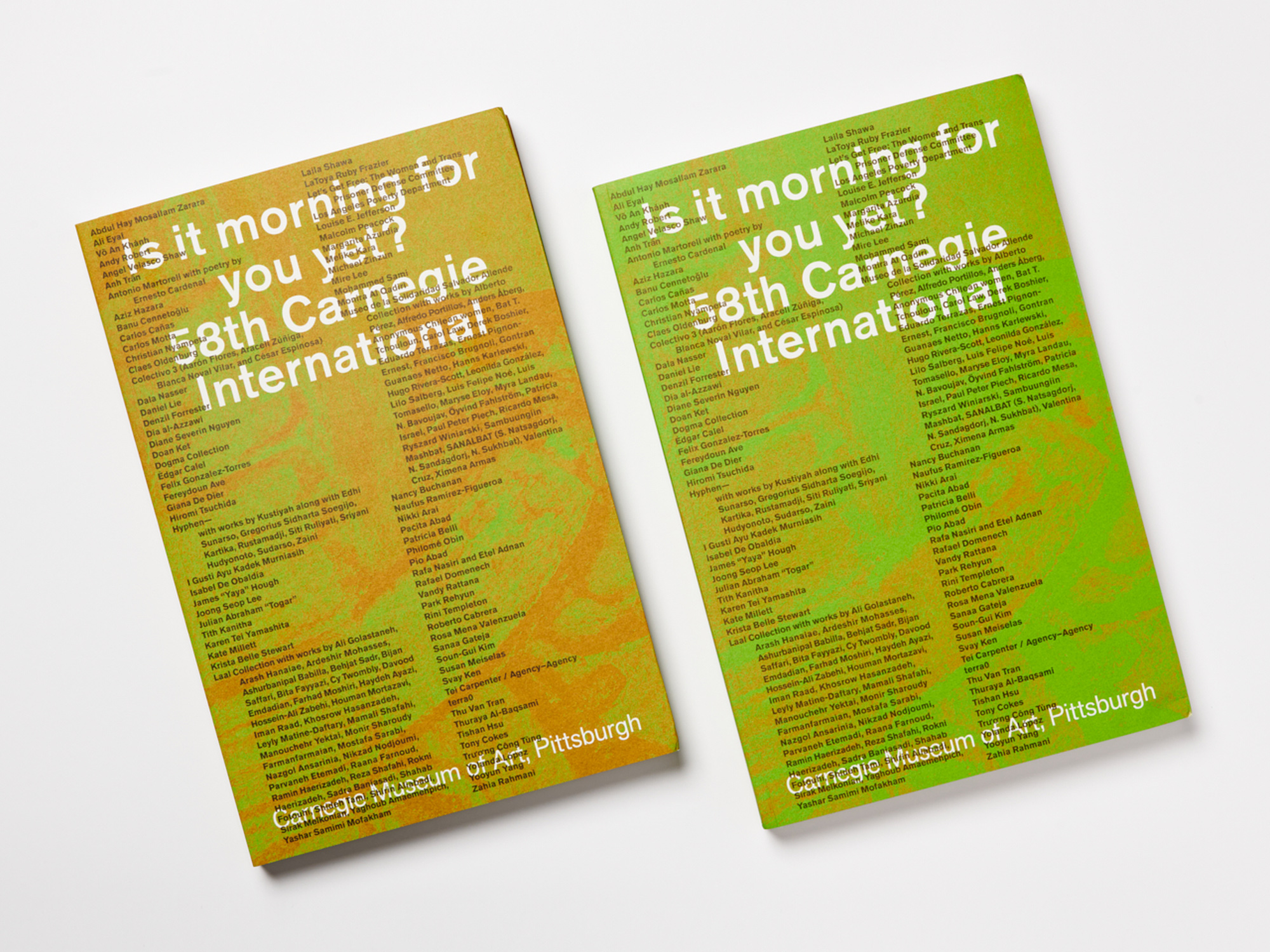Pio Abad’s (b. 1983 in Manila; lives and works in London) archival and museological research examines the words, images, objects, and deeds of past world leaders and inscribes them in the historical traumas that have shaped our present. For the 58th Carnegie International, the artist examines Andrew Carnegie’s position as an anti-imperialist and industrialist via his 1898 text “Distant Possessions: The Parting of the Ways,” originally published in the North American Review. Here, Carnegie argued against the United States’ annexation of the Philippines, even offering to buy the country’s independence for the sum of $20 million—the price the United States paid to purchase the Philippines from Spain under the Treaty of Paris of 1898, marking the end of the Spanish-American War. Central to Carnegie’s rationale was that the meager annual revenue did not warrant the expense of “running” the colony and that industry, not government, should take on the role of extracting profit from such territories.
Abad’s site-specific commission Distant Possessions (2022) borrows words from Carnegie’s essay on the Philippines, inscribing the phrase “Americans cannot be grown there” above a gallery entryway in the same style etched on the facade of the museum’s original 1895 building. The aesthetic intervention takes up the language of American exceptionalism and benevolence to reflect on the country’s imperialist legacy and cultural fragility today. The piece is in dialogue with Abad’s series Thoughtful Gifts (2019–ongoing)—located in Scaife Gallery 1 as part of Refractions—in which the artist has engraved into marble tablets the correspondence between former Philippine dictator Ferdinand Marcos, his wife Imelda, and the administration of former US President Ronald Reagan.


